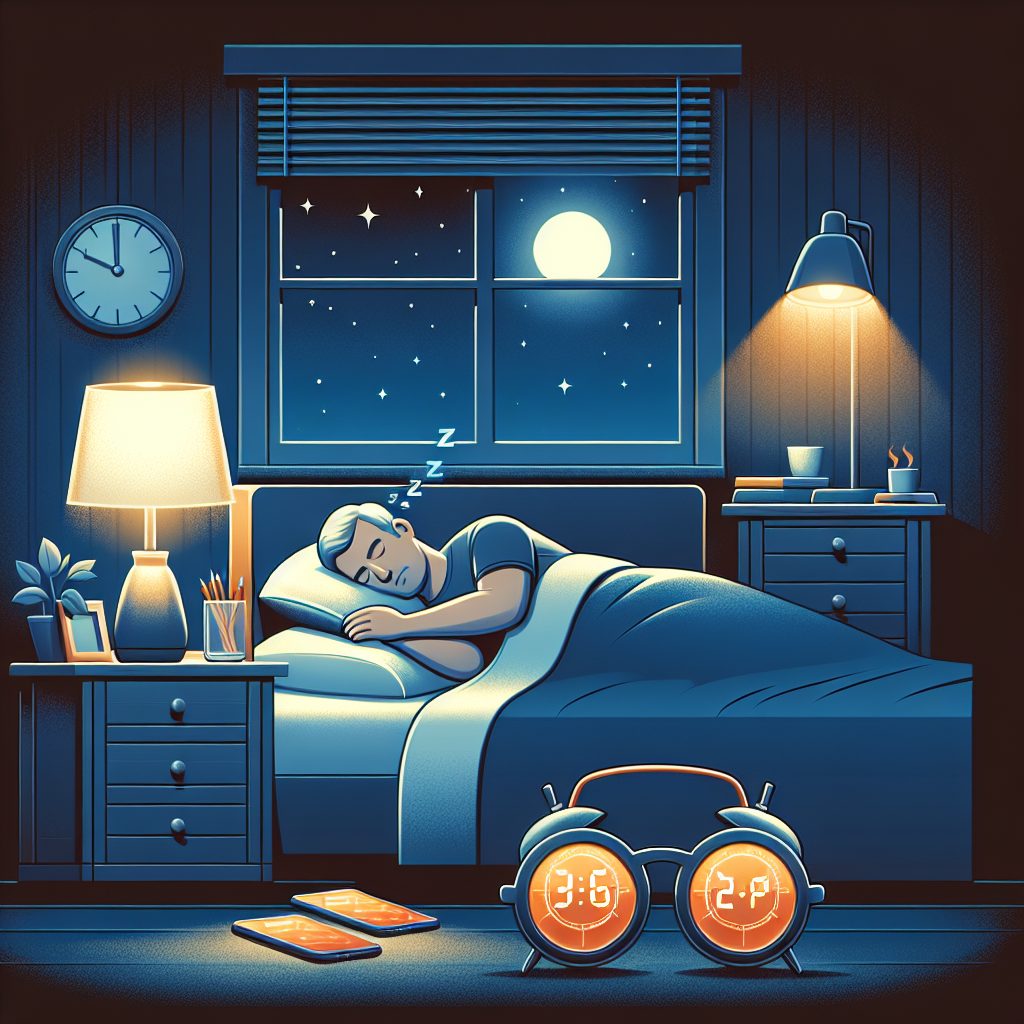Blue Light Sleep Hacks: Effortless Fixes for Better Rest

Blue light sleep hacks are essential for anyone struggling with sleepless nights. The prevalence of electronic devices—such as smartphones, tablets, and computers—has increased our exposure to blue light, potentially disrupting our circadian rhythm and making it harder to achieve quality rest. Fortunately, there are simple strategies we can adopt to mitigate these effects and improve our overall sleep quality.
Understanding Blue Light and Its Effects
Before diving into sleep hacks, it’s crucial to understand what blue light is and how it impacts our sleep. Blue light is a high-energy visible light emitted by screens and LED lighting. While it boosts alertness and helps with cognitive function during the day, excessive exposure, particularly in the evening, can hinder melatonin production. Melatonin is the hormone responsible for regulating sleep-wake cycles, meaning that cutting down on blue light exposure before bed can significantly aid in achieving restful sleep.
Implementing Blue Light Sleep Hacks
1. Set a Digital Curfew
One of the most effective blue light sleep hacks is establishing a digital curfew. Aim to put away all electronic devices at least one hour before bedtime. This simple change can enhance your body’s natural ability to prepare for sleep. By allowing your mind to wind down without the stimulating effects of screens, you facilitate the production of melatonin, making it easier to greet the morning feeling refreshed.
2. Use Blue Light Filters
If completely avoiding screens isn’t feasible, consider using blue light filters on your devices. Many smartphones and computers feature built-in settings to reduce blue light emissions, commonly referred to as “night mode.” Additionally, you can install apps that adjust your screen’s color temperature based on the time of day, significantly reducing blue light exposure when you need it the most.
3. Invest in Blue Light Blocking Glasses
Another valuable tool in your arsenal is blue light blocking glasses. These specialized lenses can filter out blue light, making them particularly useful for late-night work or gaming sessions. Wearing these glasses can help maintain your circadian rhythm, giving your body the signal that it’s time to start winding down.
Creating a Sleep-Friendly Environment
4. Dimming the Lights
Reducing the intensity of lights in your home during the evening can also help promote better sleep. Use dimmers on overhead lights or switch to lamps with warm-toned bulbs to create a cozy atmosphere. This not only minimizes blue light exposure but also signals to your brain that it’s time to relax.
5. Introduce a Relaxation Routine
A pre-sleep routine can significantly affect your sleep quality. This could include activities such as reading a book, taking a warm bath, or practicing gentle yoga. Engaging in these relaxing activities can help reduce tension and improve your mental state, making it easier to drift off into slumber.
Adjusting Your Daytime Habits
6. Maximize Daylight Exposure
Another strategy in managing blue light exposure involves maximizing natural light during the day. Make a point to spend time outdoors, especially in the morning. Exposure to natural sunlight helps regulate your circadian rhythm, which in turn can lead to better sleep at night. You should aim for at least 30 minutes of natural light exposure each day to reap the benefits.
7. Consider Your Diet
What you consume throughout the day can also affect your sleep quality. Minimizing caffeine and heavy meals close to bedtime allows your body to process nutrients properly and reduces insomnia-fuelled jitters. Opt for herbal teas or light snacks to promote relaxation.
Embracing Mindfulness and Relaxation Techniques
8. Opt for Mindfulness Practices
Mindfulness meditation and other relaxation techniques like deep breathing exercises can reduce the stress and anxiety that keep us awake. Taking just ten minutes before bed to focus on your breath or practice mindfulness can make a noticeable difference in how quickly you fall asleep and the quality of your rest.
Conclusion
Incorporating blue light sleep hacks into your daily routine can lead to significant improvements in your sleep quality. From setting a digital curfew to using blue light filters and creating a calming sleep environment, there are numerous ways to shield yourself from the negative effects of blue light. Remember, better rest is not just essential for feeling refreshed in the morning; it’s crucial for your overall well-being. By implementing these effortless fixes, you can take control of your sleep and enhance your quality of life.
